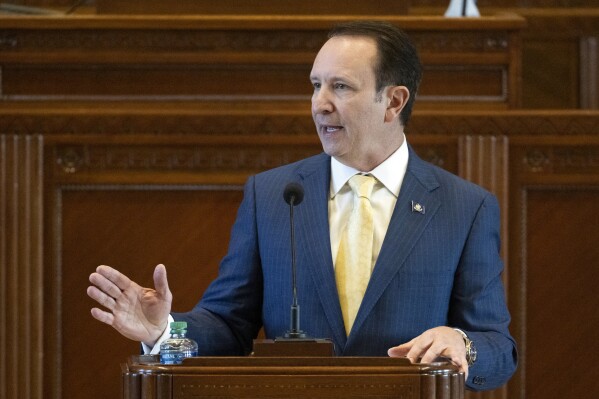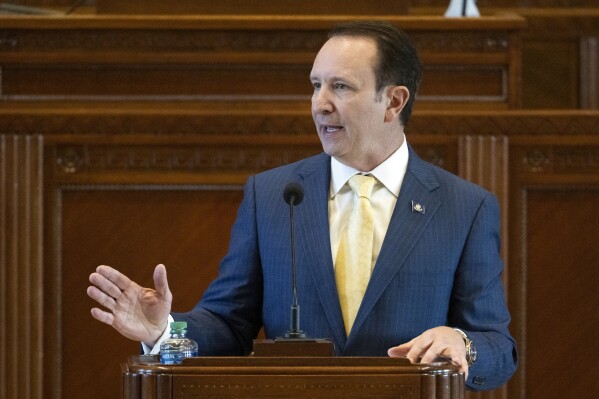Louisiana may soon require public school classrooms to display the Ten Commandments
BATON ROUGE, La. (AP) — Louisiana could soon become the first state to require that the Ten Commandments be displayed in every public school classroom — in another expansion of religion into day-to-day life by a Republican-dominated legislature.
The legislation, which received final approval from the state’s GOP-dominated Legislature earlier this week and heads to the desk of conservative Gov. Jeff Landry. It mandates that a a poster-sized display of the Ten Commandments in “large, easily readable font” be required in all public classrooms, from kindergarten to state-funded universities.
Similar bills have been proposed in other statehouses — including Texas, Oklahoma and Utah. However with threats of legal battles over the constitutionality of such measures, no state has had success in the bills becoming law. If signed into law in Louisiana, legal challenges are expected to follow.
Legal battles over the Ten Commandments in classrooms are not new, but have spanned decades.
In 1980, the U. S. Supreme Court ruled that a similar Kentucky law was unconstitutional and in violation of the establishment clause of the US Constitution, which says Congress can “make no law respecting an establishment of religion.” The high court found that the law had no secular purpose, but rather served a plainly religious purpose.



In the reliably red state of Louisiana proponents of the bill argue the constitutionality of the measure on historical grounds.
GOP state Sen. Jay Morris said Tuesday that “the purpose is not solely religious to have the Ten Commandments displayed in our schools, but rather its historical significance.”
Morris went on to say the Ten Commandments is “simply one of many documents that display the history of our country and the foundation for our legal system.”
The law also “authorizes” — but does not require — the display of the Mayflower Compact, the Declaration of Independence and the Northwest Ordinance in K-12 public schools.
Opponents continue to question the bill’s constitutionality saying that the state is sure to face lawsuits.
Democratic state Sen. Royce Duplessis argued that while supporters of the legislation say the intent of the bill is for historical significance, it does not give the state “constitutional cover” and has serious problems.
The lawmaker also questioned why the Legislature was focusing on the display of the Ten Commandments, saying there are many more “documents that are historical in nature.”
“I was raised Catholic and I still am a practicing Catholic, but I didn’t have to learn the Ten Commandments in school,” Duplessis said on Tuesday. “It is why we have church. If you want your kids to learn about the Ten Commandments take them to church.”
The author of the bill, GOP state Rep. Dodie Horton, claimed earlier this session that the Ten Commandments do not solely have to do with one religion.
“I beg to differ that this is just Christian. But I have no qualms if it was,” Horton said during a committee hearing in April. “This is not preaching a Christian religion. It’s not preaching any religion. It’s teaching a moral code.”
Last year, Horton sponsored another law that requires all schools to display the national motto “In God We Trust″ in public classrooms.
But as lawmakers have spent hours arguing over the Ten Commandments requirement, many opponents have said that there are other more pressing issues plaguing the state.
“We really need to be teaching our kids how to become literate, to be able to actually read the Ten Commandments that we’re talking about posting. I think that should be the focus and not this big what I would consider a divisive bill.” Duplessis said.
Louisiana routinely reports poor national education rankings. According to the State Department of Education in the fall of 2022 only half of K-3 students in the state were reading at their grade level.
Disclaimer: The copyright of this article belongs to the original author. Reposting this article is solely for the purpose of information dissemination and does not constitute any investment advice. If there is any infringement, please contact us immediately. We will make corrections or deletions as necessary. Thank you.


